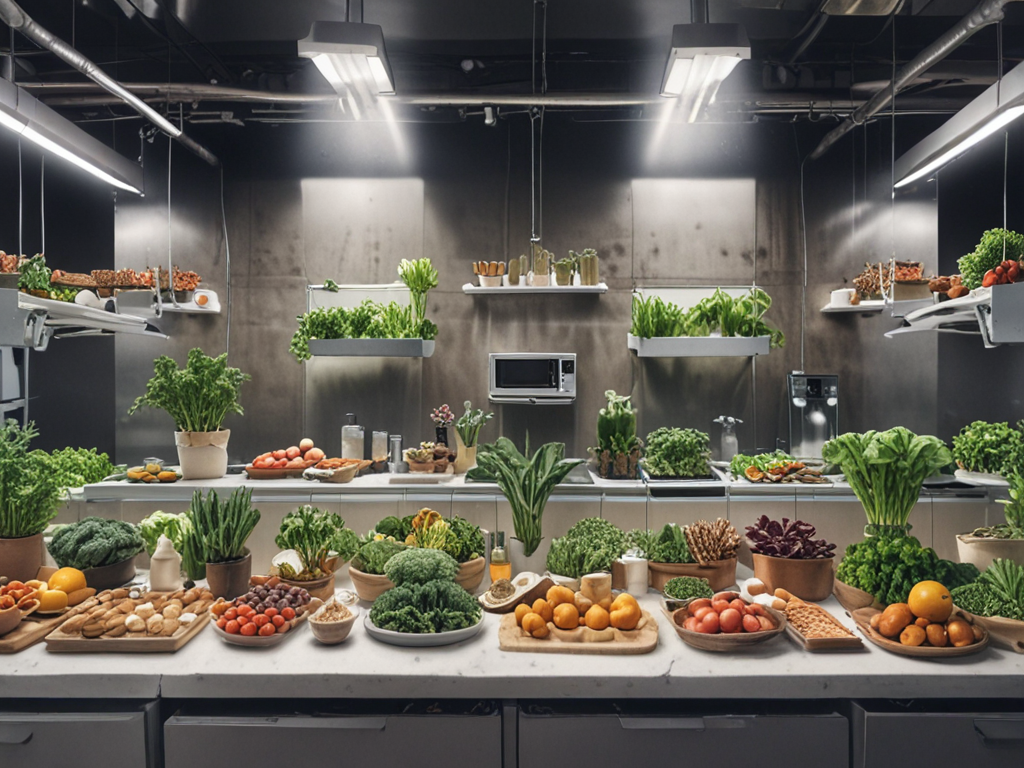
As we navigate the ever-evolving landscape of food trends, one cannot help but ponder the profound impact they will have on our future sustenance. The rise of plant-based diets has been reshaping culinary habits worldwide, hinting at a broader shift towards sustainable and ethical consumption practices. However, it is not merely about what we eat but also how it is produced, with innovative food technologies and sustainable farming methods paving the way for a more environmentally conscious future. Yet, these are just glimpses into the multifaceted universe of the future of food, where personalized nutrition, food waste reduction, and globalized food trends also play pivotal roles.
Rise of Plant-Based Diets
Plant-based diets are increasingly becoming popular among health-conscious individuals worldwide. People are recognizing the benefits of incorporating plant-based proteins into their meals for both personal health and environmental reasons. Not only are plant-based proteins often lower in saturated fats and cholesterol compared to animal proteins, but they also offer a more eco-friendly option by reducing greenhouse gas emissions and conserving water and land resources.
Many are now turning to plant-based alternatives such as tofu, tempeh, legumes, nuts, and seeds to meet their protein needs. These options not only provide essential nutrients but also promote sustainability in food production. By choosing plant-based proteins over animal products, individuals can help decrease their carbon footprint and contribute to a more environmentally friendly food system.
In addition to the health benefits, plant-based diets offer a diverse and flavorful array of meal options. Embracing plant-based proteins and eco-friendly choices not only supports personal well-being but also aligns with a more sustainable and ethical approach to food consumption.
Sustainable Food Production Methods
Utilizing innovative and sustainable practices in food production is essential for ensuring long-term environmental health and food security. In the domain of sustainable food production methods, two key approaches gaining traction are vertical farming and regenerative agriculture.
Vertical farming involves growing crops in vertically stacked layers, often in controlled environments like warehouses or shipping containers. This method maximizes space efficiency and reduces the need for large areas of land. By utilizing techniques such as hydroponics or aeroponics, vertical farming can produce high yields using minimal water and eliminating the use of harmful pesticides.
On the other hand, regenerative agriculture focuses on restoring and enhancing the health of the soil by promoting biodiversity, reducing tillage, and integrating livestock. This approach aims to sequester carbon in the soil, improve water retention, and enhance overall ecosystem resilience.
Both vertical farming and regenerative agriculture offer promising solutions to the challenges facing traditional food production methods, paving the way for a more sustainable and environmentally friendly future in agriculture.
Personalized Nutrition and Diets
Embracing tailored nutritional plans based on individual needs is becoming increasingly prevalent in the domain of dietary choices. People are realizing that personalized nutrition can have a significant impact on their well-being. Here are three key aspects to ponder when delving into personalized diets:
-
Customized Meal Plans: Tailoring meals to meet specific dietary requirements and preferences can lead to better health outcomes and overall satisfaction with one’s diet.
-
Genetic Testing: Understanding how our genes influence our nutritional needs can help individuals make more informed choices about their diet and lifestyle.
-
Nutritional Supplements: Supplementing personalized diets with specific nutrients can address deficiencies and optimize health based on individual requirements identified through DNA analysis.
Innovative Food Technology Solutions
Exploring cutting-edge advancements in food technology presents novel opportunities for enhancing dietary experiences and nutritional outcomes. Two innovative solutions that have gained traction in the food industry are smart packaging and robotic kitchens. Smart packaging utilizes technology to prolong the shelf life of products, diminish food waste, and provide consumers with real-time information about freshness and nutritional content. On the other hand, robotic kitchens automate cooking processes, guaranteeing consistent quality, personalized meals, and efficient meal preparation.
To illustrate the impact of these technologies, let’s take a closer look at their key features:
| Smart Packaging | Robotic Kitchens |
|---|---|
| Prolongs shelf life | Automates cooking processes |
| Diminishes food waste | Ensures consistent quality |
| Provides real-time information | Customizes meals to individual preferences |
| Enhances freshness | Efficient meal preparation |
| Displays nutritional content | Saves time and effort |
These advancements not only cater to the evolving needs of consumers but also pave the way for a more sustainable and efficient food ecosystem.
Food Waste Reduction Strategies
Implementing innovative food waste reduction strategies is essential in fostering sustainability within the food industry and minimizing environmental impact. By focusing on community initiatives and consumer education, we can work towards a more efficient and responsible food system. Here are three key strategies to reduce food waste:
-
Food Redistribution Programs: Establishing partnerships between food businesses, local charities, and food banks to redirect surplus food to those in need.
-
Waste Tracking Technology: Implementing digital tools to monitor and analyze food waste patterns, enabling businesses to identify areas for improvement and reduce waste.
-
Educational Campaigns: Raising awareness among consumers about the impact of food waste and providing tips on how to minimize waste at home through proper meal planning and storage techniques.
Through these initiatives, we can create a more sustainable food ecosystem that benefits both the environment and the community.
Globalization of Food Trends
The globalization of food trends has greatly transformed culinary landscapes worldwide, influencing consumer preferences and creating a more interconnected food culture. Cultural fusion is now more prevalent as flavors and cooking techniques from different regions blend together, offering consumers a diverse array of dining options. This fusion not only introduces new and exciting taste experiences but also fosters a deeper appreciation for various food traditions. Market demand plays a significant role in driving this globalization, as consumers seek out unique and authentic culinary encounters beyond their local cuisines. As a result, restaurants and food producers are increasingly incorporating global influences into their menus and products to cater to this growing interest. The interconnectedness of food trends on a global scale has sparked innovation and creativity in the culinary world, pushing boundaries and redefining traditional food norms. Embracing this cultural exchange through food allows individuals to explore and celebrate the richness of global gastronomy while promoting unity and understanding across borders.





